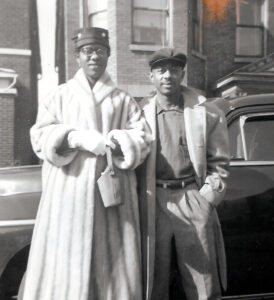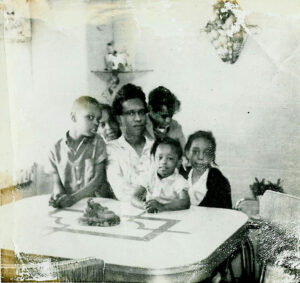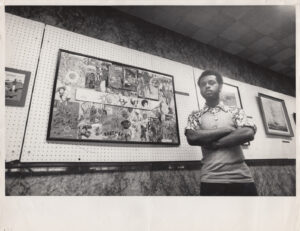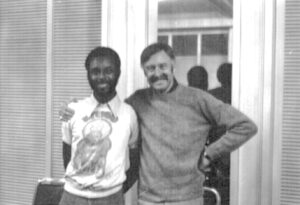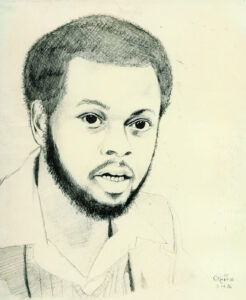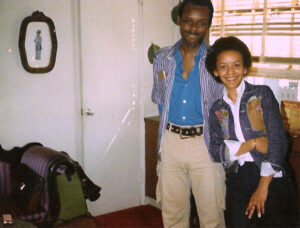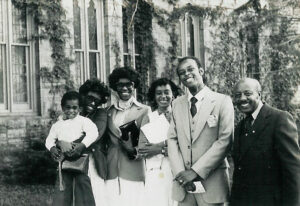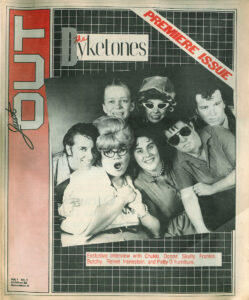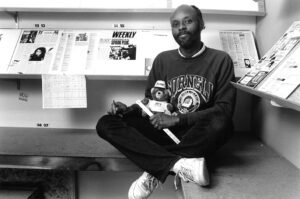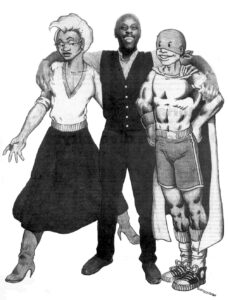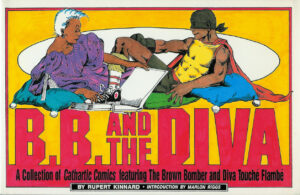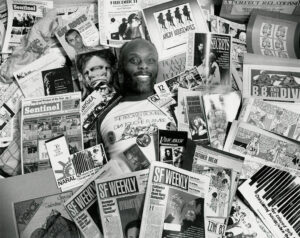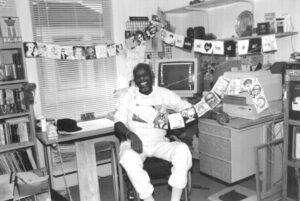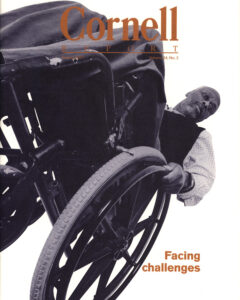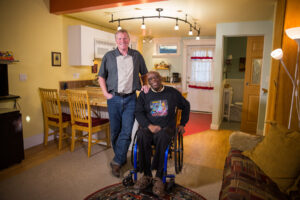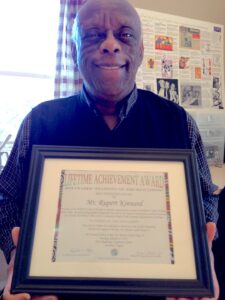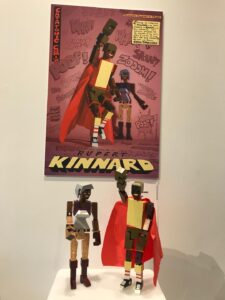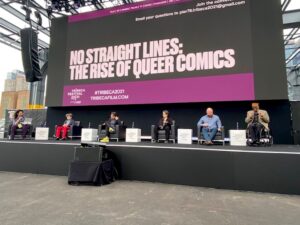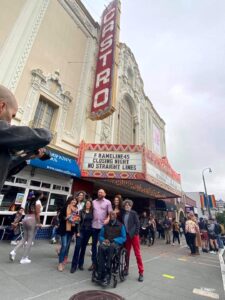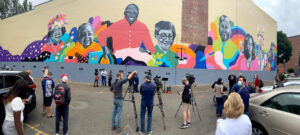Rupert Kinnard was born on July 21, 1954 in Chicago, Illinois. He grew up on the west side surrounded by extended family. Rupert disliked school until a neighborhood friend introduced him to the Chicago Public High School for Metropolitan Studies. There, Rupert became excited to take various classes all over Chicago with a diverse student body, unleashing his lifelong love for making art.
From a young age, Rupert always preferred creative crafts and keeping to himself. His family unconditionally supported his passions by buying him superhero model kits and encouraging him as he started drawing comics. Rupert realized that he especially loved the attention he got for his art from the boys around him. He always felt that his attraction to other boys was natural, but considered his gay identity more consciously when he met openly flamboyant and confident African American gay men in his high school years. He came to respect them for their determination to live as their full selves.
After Rupert graduated from high school, he spent the summer in Arizona and then moved back to Chicago, where he began working with the Chicago Sun-Times and Daily News. Longing to be part of those papers’ art departments, he returned to school and pursued an art degree at Cornell. There, he started creating an editorial cartoon featuring Brown Bomber, an African American superhero through whom he expressed his personal politics. After Cornell, he road tripped through the west coast until he fell in love with Portland and stayed there.
In Portland, Rupert took a job with the Williamette Week newspaper and learned about graphic design. He eventually took part in creating Just Out, a queer newspaper, where he started publishing a queer Brown Bomber comic strip with the addition of a lesbian character, Diva Touché Flambé. That strip was dubbed Cathartic Comics. Rupert began mingling with gay rights political activists, which eventually landed him a seat on the Portland Town Council board. There, he created a Diversity Alliance subgroup to advocate for women’s and POC issues within queer communities. Frustrated at how white-dominated the local queer events were, Rupert also founded the African American Lesbians and Gay United.
Itching for a change of scenery, Rupert then moved to the San Francisco Bay Area for 7 years, where he worked in creative and art director positions in the newspapers Coming Up, San Francisco Sentinel, SF Weekly, Out/Look, and the Oakland Tribune. He published his “Cathartic Comics” through Alyson Publication as a book called B.B. and the Diva. During this time, he also met and fell in love with his partner, Scott Stapley. Eventually, when Rupert was laid off from the Oakland Tribune, he and Scott returned to Portland together.
During a trip to visit family in Mississippi, Rupert was in a car accident that left him with a severe spinal cord injury. Rupert appreciatively recalls how his community helped him through his grueling recovery – his friends modified his home, raised money for renovation, and fellow queer cartoonists drew him a string of get well panels, led by his close friend Alison Bechdel. Drawing strength from his support network, Rupert continues to create art to this day. Most recently, he showcased his Life Capsule project, through which Brown Bomber and Diva tell his life story – the story of a powerful African American gay cartoonist in a wheelchair.

